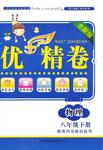题目内容
Do you know how to play a game called “Musical Chairs”?It is easy to play and most people enjoy it. All you need are some chairs, some people and some way of making music. You may use a piano or any other musical instrument, if someone can play it. You may use a tape recorder. You can even use a radio.
Put the chairs in a row. The chairs may be put in twos, back to back. A better way is to have the chairs in one row with each chair facing in the opposite direction to the chair next to it.
The game is easy. When the music starts, the players walk round the chairs. Everyone goes in the same direction, of course, they should walk in time to the music. If the music is fast they should walk quickly. If the music is slow, they should walk slowly.
The person playing music cannot see the people in the game. When the music stops,the
players try to sit on the chairs. If a person cannot find a chair to sit on,he drops out. Then,before the music starts again,one chair must be taken away. When the music stops again one more player will be out.
At last, there will be two players and one chair. The one who sits on the chair when the music stops is the winner.
小题1:If ten people are playing musical chairs,you must begin with ________.
小题2:Which of the following is not suitable for playing musical chairs?
小题3:The chairs should be put ________.
小题4:When the music starts, the players must ________.
小题5:Which of the following statements is NOT true?
Put the chairs in a row. The chairs may be put in twos, back to back. A better way is to have the chairs in one row with each chair facing in the opposite direction to the chair next to it.
The game is easy. When the music starts, the players walk round the chairs. Everyone goes in the same direction, of course, they should walk in time to the music. If the music is fast they should walk quickly. If the music is slow, they should walk slowly.
The person playing music cannot see the people in the game. When the music stops,the
players try to sit on the chairs. If a person cannot find a chair to sit on,he drops out. Then,before the music starts again,one chair must be taken away. When the music stops again one more player will be out.
At last, there will be two players and one chair. The one who sits on the chair when the music stops is the winner.
小题1:If ten people are playing musical chairs,you must begin with ________.
| A.nine chairs | B.ten chairs |
| C.eleven chairs | D.one chair |
| A.A piano | B.A radio |
| C.A tape recorder | D.A telephone |
| A.with the desks |
| B.before the winner |
| C.all over the room |
| D.in a line |
| A.run about the room |
| B.get down |
| C.walk around the chairs |
| D.sit on the chairs |
| A.The game “Musical Chairs” is not difficult to learn. |
| B.The last one can sit on the last chair. |
| C.The winner can sit on the chair. |
| D.If the person plays music, he cannot be the winner. |
小题1:A
小题2:D
小题3:D
小题4:C
小题5:B
试题分析:这篇短文主要介绍了一个抢椅游戏,作者重点描述了这个游戏的游戏规则。
小题1:根据When the music stops,the players try to sit on the chairs. If a person cannot find a chair to sit on,he drops out.描述,可知十个人玩游戏,只能有九把椅子,这样才会有一个人坐不到椅子,故选A。
小题2:根据第一段You may use a piano or any other musical instrument, if someone can play it.描述,结合常识电话机是不能用作乐器演奏的,故选D。
小题3:根据第二段Put the chairs in a row.描述,可知选D。
小题4:根据When the music starts, the players walk round the chairs.描述,可知选C。
小题5:根据At last, there will be two players and one chair. The one who sits on the chair when the music stops is the winner。描述,可知最后会有两个人和一把椅子,故选项B,描述与原文不符。
点评:本文中长句较多,一时很难读懂句子含义,注意多读几遍,不要强求非得理解一词一句的含义,能把握文章大意就行。然后带着问题阅读短文,一般就能顺利找出答题依据。对于不能直接找到根据的问题注意联系上下文,根据短文中心总结出正确答案。

练习册系列答案
 优加精卷系列答案
优加精卷系列答案
相关题目
